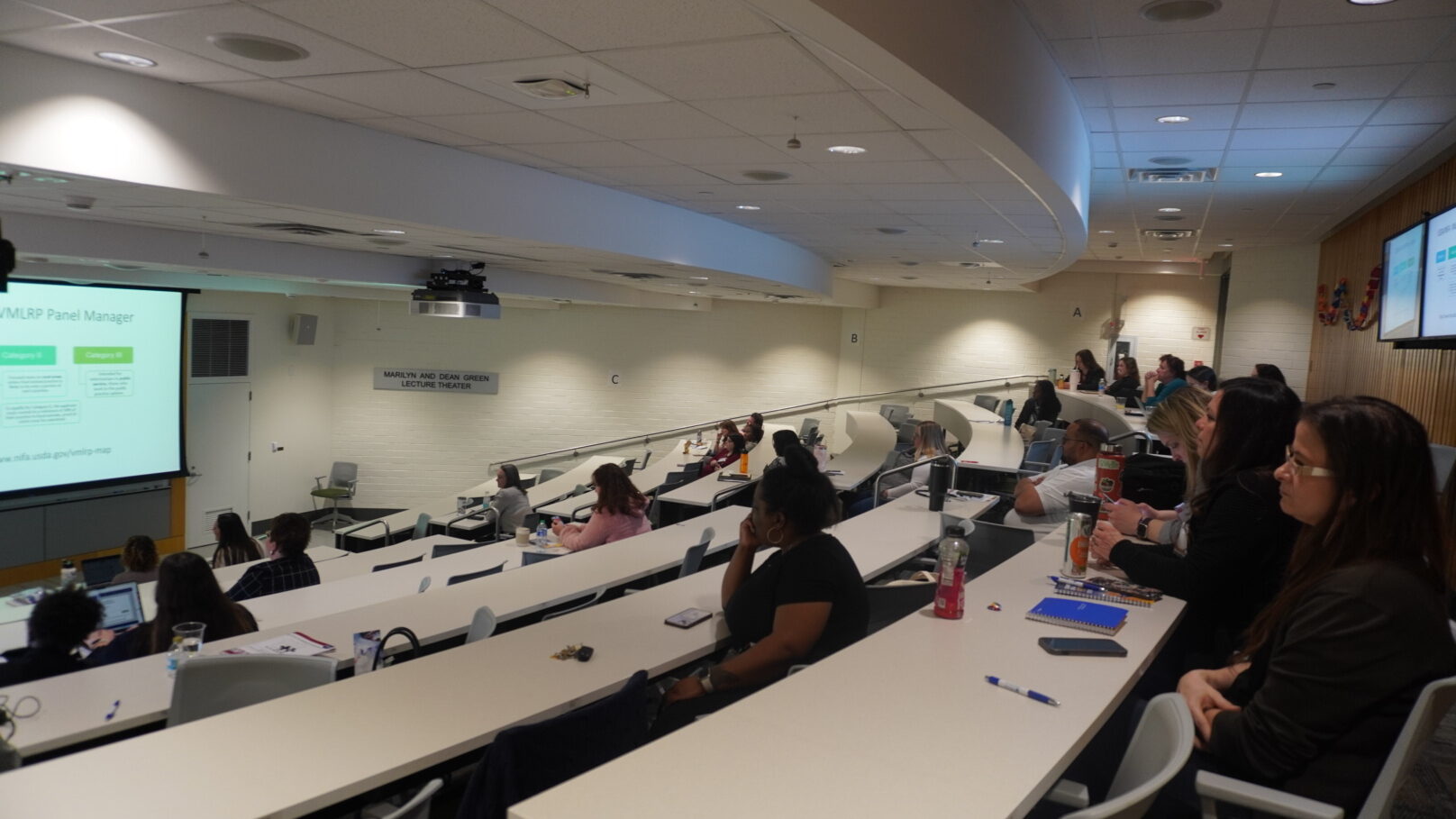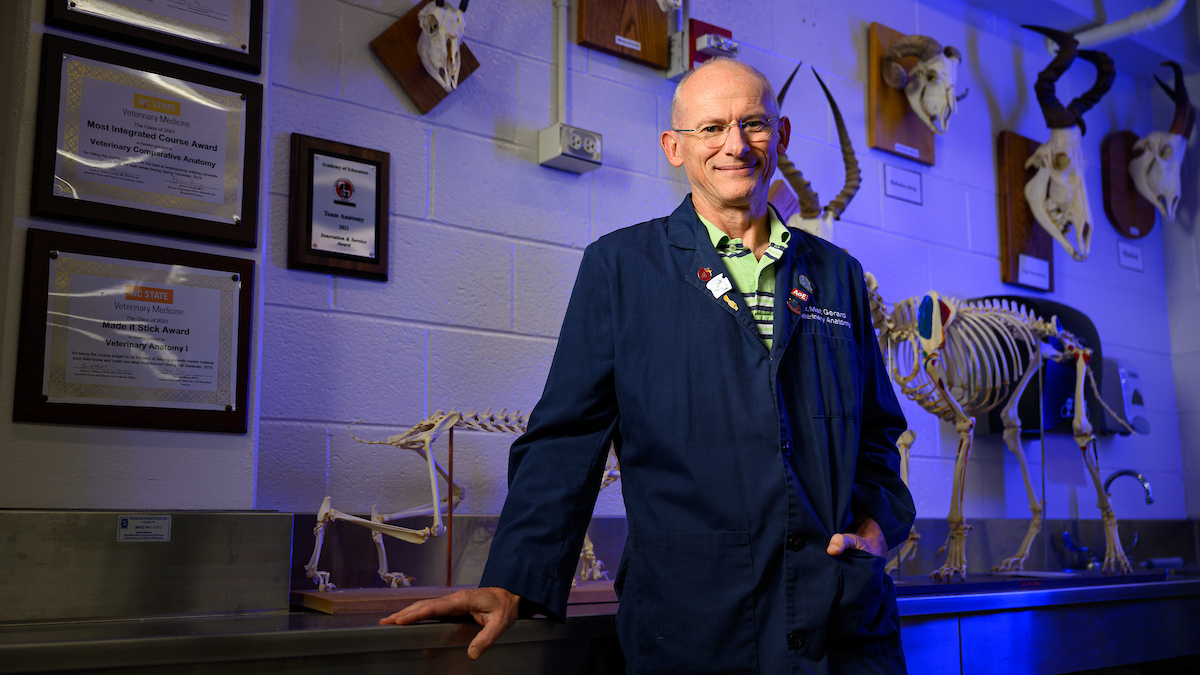Building Business-Savvy Vets: A Q&A With Student Leaders of NC State’s Veterinary Business Management Association
Fresh from hosting the annual Red Wolf Leadership Conference — which recently won a national award — officers from NC State’s VBMA chapter explain how the club helps connect the local community.
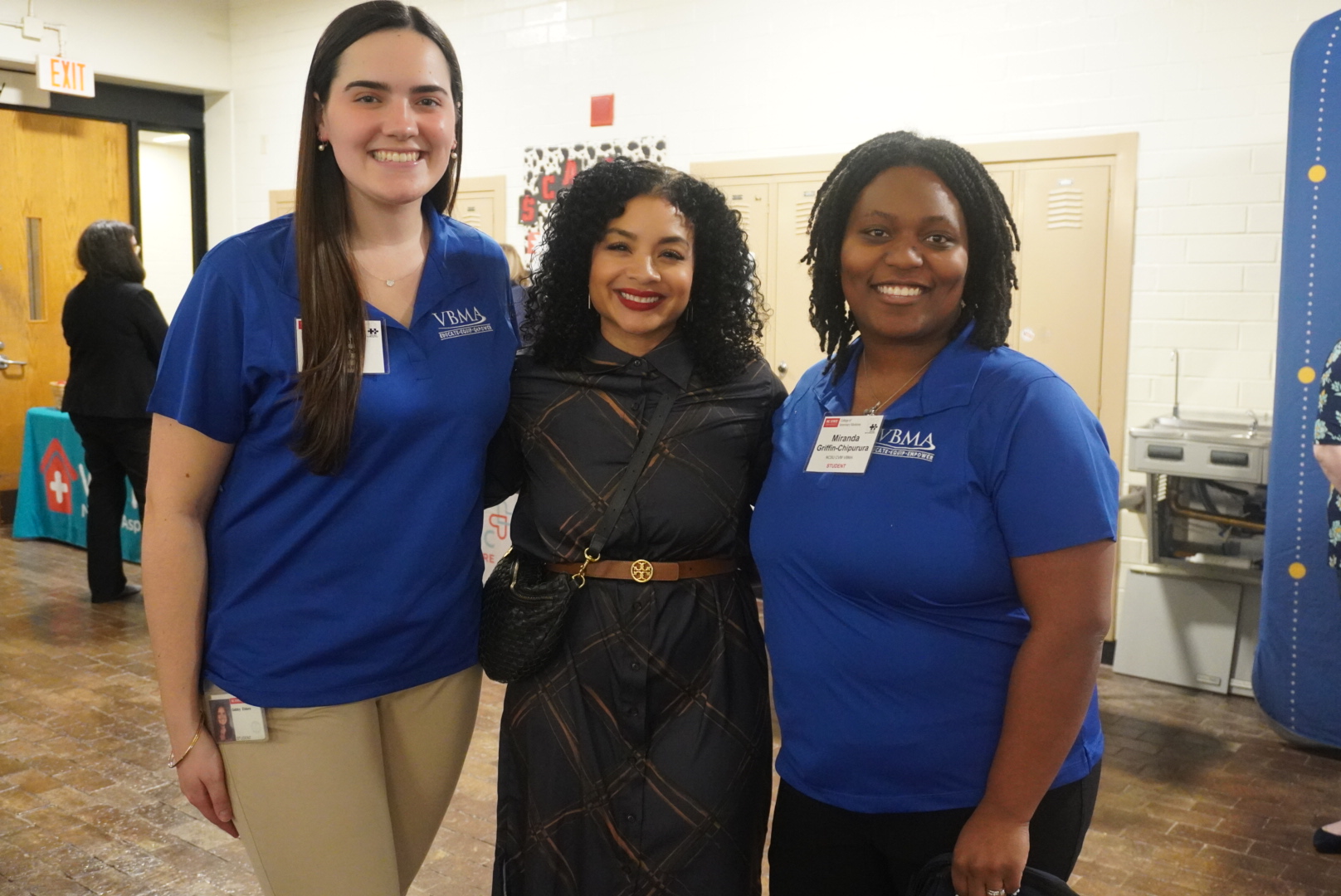
To run a successful practice, veterinary students need to know how to balance both patient needs and a checkbook.
The NC State College of Veterinary Medicine’s curriculum covers the former and key elements of the latter, and the student-run Veterinary Business Management Association supplies the finer details of finance and networking to future business leaders.
The award-winning student organization is among the largest clubs at the college, with about 100 members. The association organizes regular guest lectures and runs a certificate program for participating students to learn business skills.
It also hosts an annual leadership conference for students and local veterinary professionals. That event, the Red Wolf Leadership Conference, won NC State’s VBMA chapter the Award for Networking Excellence at the 2024 VBMA National Meeting in January.
VBMA’s 2023 president, third-year student Gabrielle Elders, and 2024 president, second-year student Miranda Griffin-Chipurura, discuss how the organization empowers the College of Veterinary Medicine’s future veterinarians and engages North Carolina’s veterinary community.
For people who might be unfamiliar with VBMA, how would you describe it?
Gabrielle Elders: VBMA is a student-run organization promoting business initiatives within veterinary medicine. That being said, you don’t have to want to become a practice owner to become a VBMA member. We do a lot of stuff to help students become well-rounded veterinary professionals, whether that’s becoming better at networking, learning more of the nitty-gritty business side that we don’t necessarily get in the classroom, and also learning life skills like financial planning, loan repayment and how to write resumes.
Miranda Griffin-Chipurura: VBMA is a student-driven organization dedicated to advancing the veterinary profession through increasing business knowledge, creating networking opportunities and empowering students to achieve their personal and professional goals. We’re ensuring students can hold their own and be successful in practice by teaching them how to network and understand business ownership.
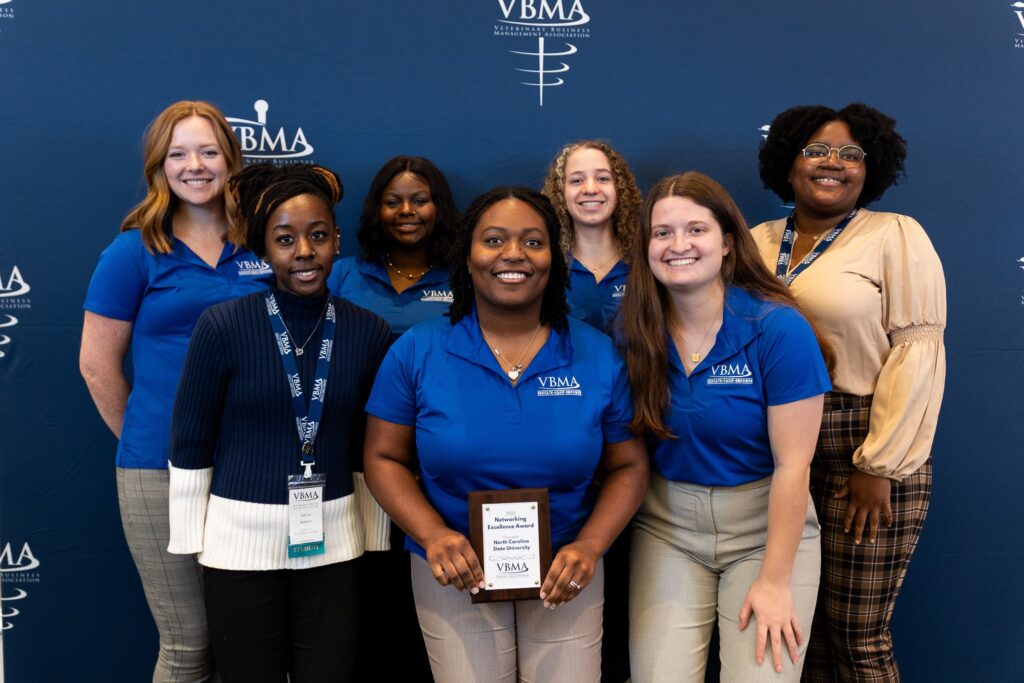
What types of business and professional skills does VBMA emphasize, and why are these skills essential for current and future veterinarians?
GE: At VBMA, we really try to highlight all the different aspects within veterinary medicine to prepare our students to be ready from Day One once they graduate. Our Business Certificate Program lets students gain credit for attending our meetings and events toward a specific certification. There are four different categories: Business finance, business management, business leadership and career and personal development. We also have an honors-level certificate program that requires an honors professional portfolio, which will be reviewed and evaluated by a practicing VBMA alumni clinician. Those certificates are something that students can put on their resumes in the future, and students get cords at graduation. But really, VBMA just makes sure that once students graduate, they’re ready for upcoming interviews, and they know how to build practice culture and how to communicate with a team.
MGC: Every week, we hold a different lecture with speakers from all sectors of vet med — not all of them are business owners, either, so students hear a little bit of everything. Guests speak on their personal and business experiences to help students have a better idea of what to expect when they graduate. VBMA also emphasizes the importance of networking. When I first started school, I was terrible at networking because I didn’t know how to have a professional conversation with somebody and build that relationship. But having gone to the VBMA National Conference twice now and through scheduling speakers, I’ve built tangible leadership, communication and networking skills. Even if students don’t want to go into business ownership, they’re still going to have to network, and so we help them learn how.
How does VBMA prepare veterinary students for whatever direction their career takes them, whether they hope to work for an established practice or one day start their own practice or business?
GE: When we’re picking our different speakers and topics, we try to give students an array of options. The debate in veterinary medicine right now is about joining corporate practices or starting your own practice, and we’re making sure that our students have the opportunity to learn about both and hear from people who have worked in different types of practices. We love to tap into our alumni network whenever possible. We’re giving students the opportunity to listen and decide for themselves how they want to move forward with their own veterinary careers.
MGC: Many of the business connections that I and other VBMA members have today were formed with veterinarians who came to speak at NC State or who attended previous VBMA conferences. You can really build on those relationships, so by the time students are in their fourth year, they already know where they want to go for externships or where they want to work after graduation because they’ve been speaking to these vets. VBMA really does help students create those relationships early, and not just create them but learn how to network, mentor and build their careers.
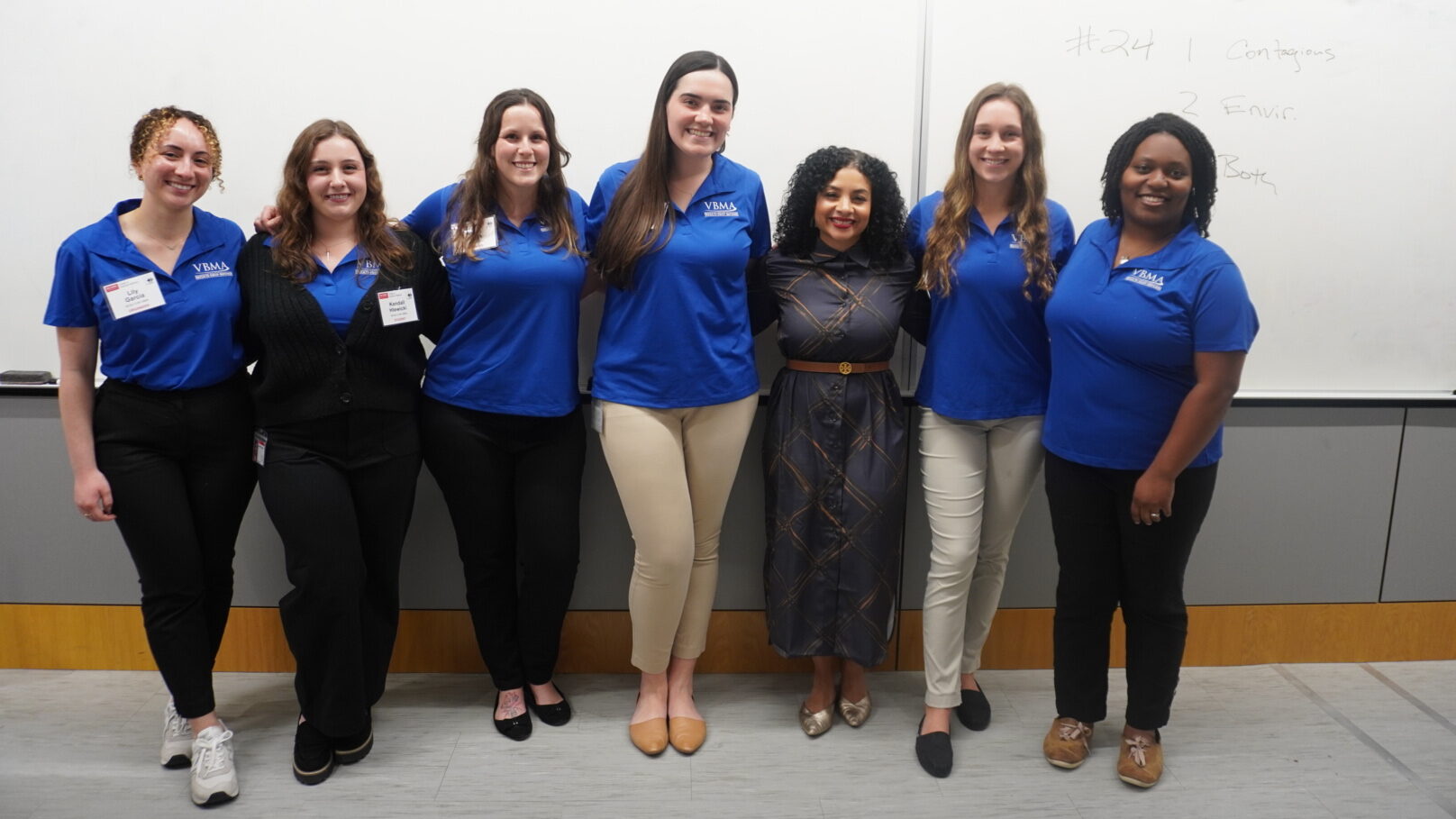
What makes NC State’s VBMA chapter distinct from others nationwide?
GE: Besides our sizable membership, we are also one of the only VBMA chapters that puts on our own conference every year. For the past 15 years, we’ve been hosting veterinarians, veterinary technicians, students, office managers and NC State faculty for a weekend at the CVM focused on developing and enhancing leadership within the veterinary profession. We give students and local practitioners the opportunity to network with each other, earn continuing education credits and learn how we can make our profession a better place for everyone involved. I think that’s a really big accomplishment.
MGC: Other chapters are absolutely wonderful and do fantastic things, but our annual conference makes us stand out.
In January, NC State’s VBMA chapter won an award for organizing and hosting the 2023 Red Wolf Leadership Conference. What’s the significance of that award?
GE: We received the Award for Networking Excellence for providing the opportunity for students to network with faculty, staff and local technicians and veterinary professionals. Last year’s conference was all about sustainability within the veterinary profession, focusing on the different aspects of well-being, from financial well-being to mental and physical health and well-being. We’re very proud and honored to have received this award from the national meeting. Our officer team puts a whole year of time and effort into making these conferences a reality, and it felt really great to have that hard work acknowledged.
MGC: We were super excited to win the Award for Networking Excellence and be recognized at a national level for all the planning, networking and outreach that it takes to host this big event.
This year’s Red Wolf Leadership Conference focused on diversity and belonging in the veterinary field. Inclusivity is one of the core guiding values of the CVM community. What do you hope participants took away from this year’s event?
GE: A lot of people are aware that veterinary medicine is one of the least diverse professions in the United States, and it’s a very staggering issue for our field. We’re hoping that our attendees learned more about the barriers preventing us from becoming a more diverse profession, how Diversity, Equity, Inclusion and Belonging initiatives can influence workplace culture and patient care, what inclusivity and inclusive mentorship mean and how to hire a diverse team. DEIB is very important to me, and I was so excited to share that passion of mine with everybody in attendance.
MGC: I really hope that after this weekend, people can incorporate DEI in every aspect of their business to make sure that not only are we building community as a profession, but we’re also building successful, inclusive and enduring vet practices. Being a member of a marginalized community myself, I thought it was absolutely fantastic that we emphasized that DEI is not just a piece of the puzzle, but part of the whole focus.
